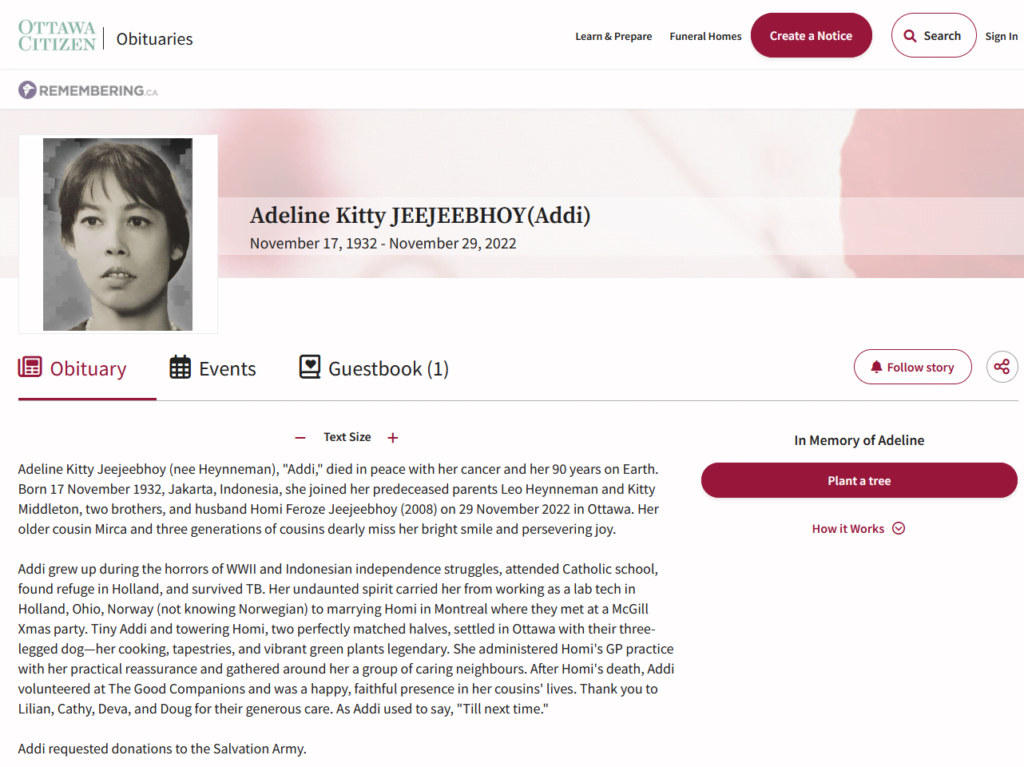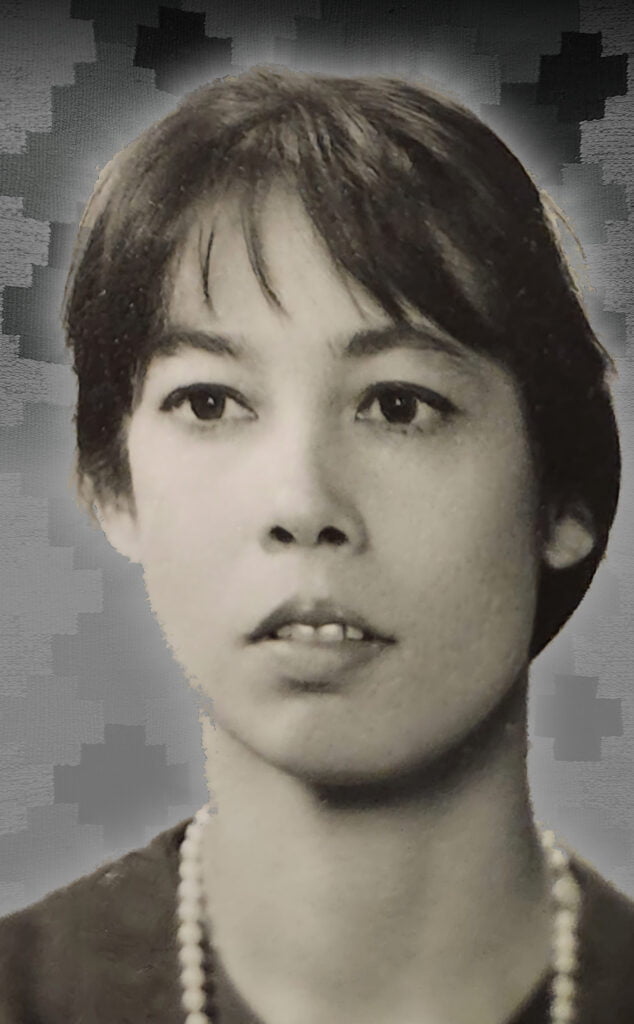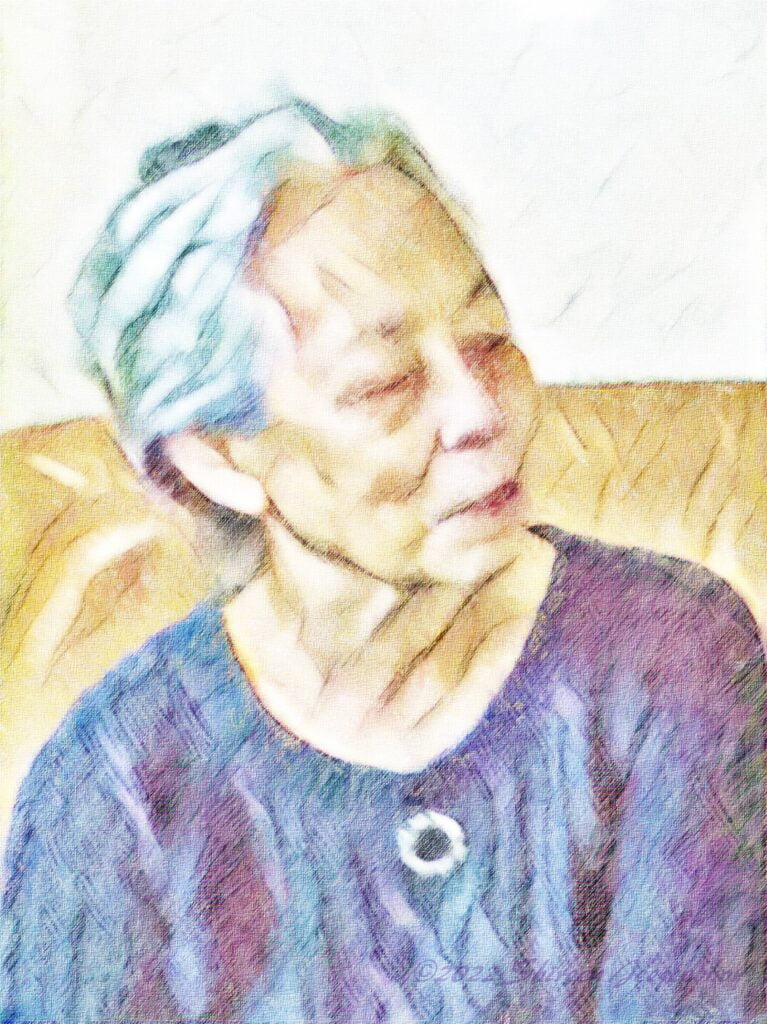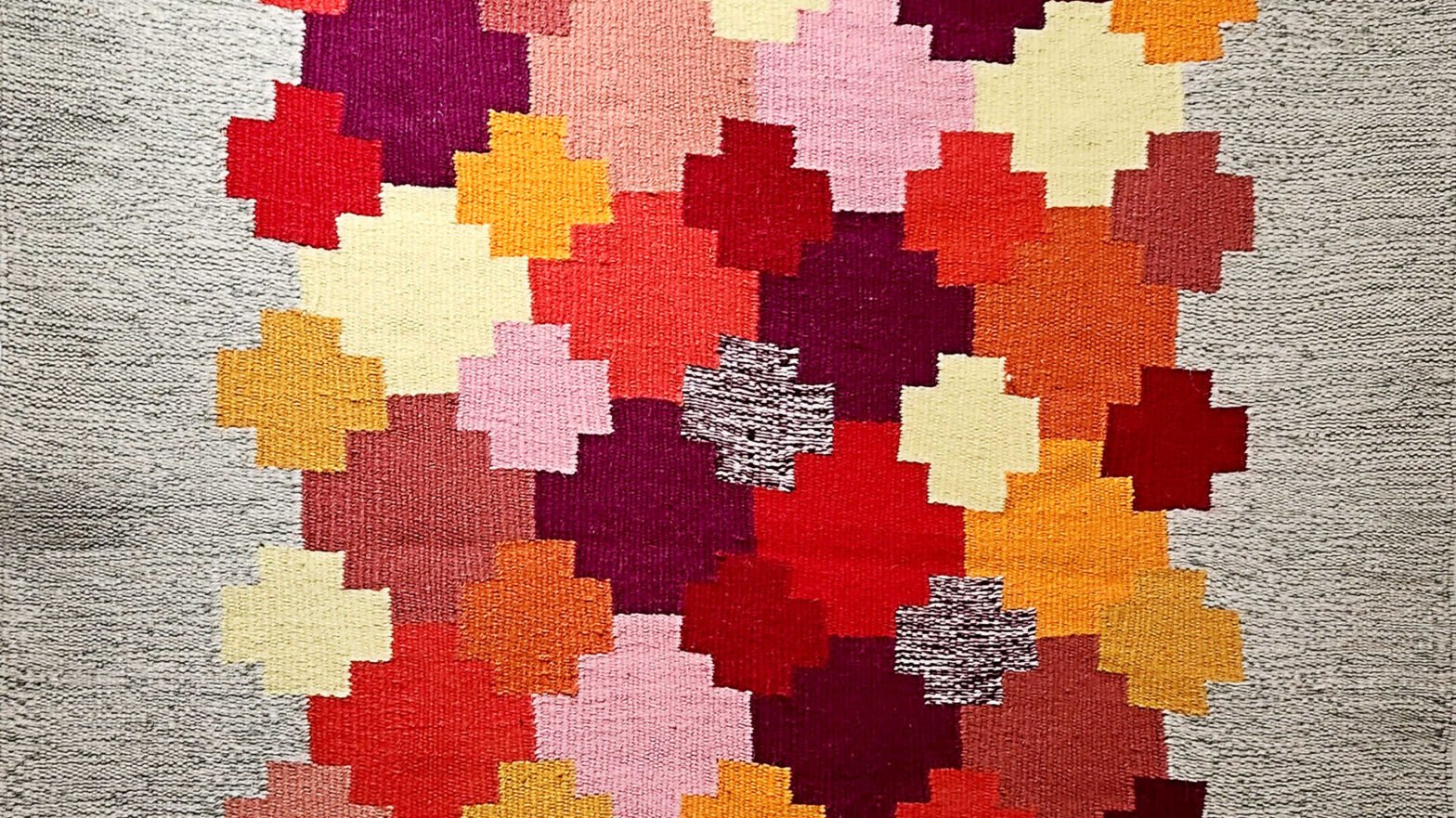I don’t remember when I first met Addi Jeejeebhoy, but our last conversation is sewn into my heart. Technically my cousin, I always saw her as my Aunt. It was a Sunday when we last spoke. I’d finished my usual exercise and chores for the day and collapsed into my big chair. I called Addi on my new iPhone. With no headphone jack, I held its speaker up close to my mouth so she could hear me. I expected the phone to ring awhile. I’d long been used to Addi’s deafness. So I was startled when she answered on the first ring. Had she been waiting for my call? Or did she know it would be our last and hadn’t wanted to miss it? I barely managed to wish her happy 90th before she interrupted to wish me happy 60th. Our birthdays, just past, were one day and 30 years apart. I knew the end of her life was close, and she’d spoken in words of knowingness. I asked her what she wanted. “I don’t know…,” she said as if the idea had never occurred to her. And then she thought. In her answer, more than anything, was the desire not to do anything anymore. I understand that level of exhaustion.
Two days later, on Tuesday, 22 November 2022, she was waiting in the ambulance garage to be admitted to hospital. Our health care system is in such collapse, the staff were forced to let my 90-year-old Aunt wait in that inhospitable environment. But she could see her friend Lilian waiting for her, and had felt cared for when her next-door neighbour and other long-time friend Cathy had found her in distress and called the ambulance. They apprised her Power of Attorney and younger cousin Deva of this sudden turn of events.
A week later, Adeline Kitty Jeejeebhoy (nee Heynneman), “Addi,” died on an oncology ward in palliative care like my Uncle had last year, in peace with her cancer and her 90 years on Earth. I sensed her frolicking with her much-missed husband, my Uncle Homi, who’d died in 2008. Frolicking?! Yes, frolicking! We forget that underneath greying hair and shrinking bodies, wrinkled skin and gnarled hands, beats the same youthful heart that danced, wore high heels and elegant clothes, worked in foreign lands, and partied. She and he were finally together again and extraordinarily happy in this, their next chapter.

My Aunt Addi was of the generation that grew up in the War — WWII — and survived independence struggles that followed after. The children of that world war and subsequent violent independence uprisings are in their 80s and 90s now, but they still carry their hidden scars of growing up among bombs falling from the sky with earth-pounding booms, planes on fire landing with only wheels and structure still intact, screams filling the night as young men hunted down who they considered their enemy as mothers hid their children in darkened homes. I’ve heard their stories over the decades. Those who grew up here have a kind of placidity or mental health I notice is missing from the older generations in my life. Every relative who grew up in that long ago war’s rage and hatred, formed out of one man’s greed for power, developed habits or ways of thinking that let them survive and grow into thriving adults.
Addi’s was a propensity to not think about the bad stuff. “You don’t want to think about that, Shireen,” she’d say with a smile, yet allowing me to continue or to change the subject.
It was like her walk. A tiny thing, she’d walk quickly, her feet close to the ground, and suddenly list to one side. She’d titter, “Oops!”, right herself, and keep on walking as if she hadn’t suddenly unbalanced. When I first saw her characteristic walk, I worried. Would she fall? Should someone reach out to right her? But nope. My Aunt had lived with this since she’d had TB in the 1950s.
Back then, when you were diagnosed with tuberculosis or TB, you were sent forthwith to a sanitorium. They existed before I was born, but I knew of them. It boggled my mind that when diagnosed with an infectious disease you’d be sent to a place separated from home, work, and community. But I didn’t expect Addi to talk of her two years in such a place as if it was just a part of life. We forget how previous generations dealt with infectious diseases. But she was happy to be able to leave permanently, once she was fully, properly recovered. Left partly deaf and with her sudden lists in her walk, she headed into an adventurous life, the scars of that time revealing themselves only in her yearning to leave hospital to the point that when she was still able, she’d rip out her IV and go home.
Born Adeline Kitty Heynneman in Jakarta, Indonesia to Leo Heynneman and Kitty Middleton, Addi had an older brother, who became an animator and lived with their mother in The Hague, and a younger one who became an aeroplane engineer at KLM and lived in Amsterdam. Back when they were children, although neither of her brothers had to go, her mother sent her to Catholic school. “I don’t know why,” Addi said to me. I don’t think the nuns and priest stood a chance with her.
One time, her class sat for a test for the priest. After three questions or so, she didn’t know the answers because she “couldn’t be bothered to study.” She gave in one sheet. (She tells me this as if it’s the most natural thing, and I’m struggling to grasp the idea of an Asian girl in a colonized land attending Catholic school not bothered about what would happen at such overt yet quiet rebellion against authority.) Addi continued, “I always fell asleep in history lesson. Such a droning thing with all the years have to remember,” she explained, dragging out the vowels in a lower tone. “Who cares!” Addi said, tittering. Her teachers would have to wake her up. They’d say to her, “You’re small, so you sit in front.” Perhaps the nuns mistakenly thought she’d stay awake if highly visible to all. Not a chance!
Anyway, the priest approached her after the test to say he’d lost the rest of her test and wanted to give her another chance to sit for it. She forthrightly told him she wasn’t going to study and she’d turned in only one sheet. I burst out laughing at this point in her story as I’d have never dared. But she’d suffered no consequences. I guess when you grow up in war and hear nightly screams from terrified people being hunted, priests, nuns, anything, really, don’t frighten you.
In her teens, they escaped the independence struggles going on in Indonesia and joined relatives in Holland. She became a lab tech and travelled to Norway to work for a year or two. Nope, she didn’t know the language, she told me. That didn’t bother her. One night, she was the only one available when they needed to draw blood from a boy who was aggressively resisting. She somehow conveyed to him the truth — it was going to hurt a little but then it’d been done. The others had used the usual language of downplaying pain, and the boy had cottoned on to that lying tactic pretty quickly. After that, he only wanted Addi to draw his blood.
Perhaps that combination of speaking truth plainly while not getting into details is what endeared her to patients decades later. But I’m getting ahead of myself.
Addi also worked for a year in Ohio, USA. One day, a Japanese doctor said he was going to take gliding lessons and would she like to come along. Yes, she said. That was Addi. If you asked her to do something, she invariably said yes, with a kind of insouciance. While she was hanging around in the airfield, someone asked if she’d like to go up. Yes, she said. She described her flight to me, and I felt her remembered freedom and joy all the way down the phone line.
(I created this portrait for her obituary. She’s 40 in the picture I used. I know, I know. 40?!)

She landed in Canada through her older cousin Mirca, whom she’d known almost all her life. When Addi was visiting, Mirca told Addi she knew someone who worked at McGill University in Montreal and asked her for a job for Addi. Addi moved in with a roommate, and perhaps it was on that first Christmas when the roommate said, “Let’s have a Christmas party! We’ll invite people from the lab. You have to cook turkey, Addi.” Did I mention Addi could cook? That’s a bit of an understatement! Turkey? What’s turkey? Addi wondered but didn’t ask out loud. Instead, she said yes then asked the doctor’s secretary, “How you have to cook turkey?” Addi told me how everybody said her turkey was good, as if it was both wondrous that it turned out, and natural. Homi was there, too. That’s where they met. They married in June.
My Uncle Homi died in 2008, and not since my great-grandfather, were a husband and wife so mismatched in size. Uncle Homi was a large man. Tall and enormous in frame. Addi practically disappeared next to him. Yet they made two perfectly matched halves. “Addi!” Uncle Homi would call out. “Coming!” Addi would sing out as she hurried in her small, quick steps towards him, to find out what he wanted or needed.
Seriously, Uncle Homi, I’d think silently to myself. She’s not your slave! But no one ever talked back to Uncle Homi! Not even my Dad stood up to him. When I did after my brain injury in my actions, he’d lecture me in his calm, not-going-to-give-way voice, the Zoroastrian way. Was that why Addi did whatever he said? I’m not so sure. As I grew older and got to know Addi in her widowhood, I realized that they functioned in synchronicity. Uncle Homi thought a lot, while my Aunt tended to not think — a strange dichotomy of knowing a lot without wanting to know. Of seeing truth and speaking it, yet not thinking too deeply. Of knowing what she wanted and holding her ground, yet telling people what she thought they wanted to hear about herself and situation. It emerged in the estate lawyer telling her to choose a lawyer as an Executor, her following his instructions and choosing my brother, but then neglecting to tell him. Had anyone told Addi to tell him? I found after my brain injury that if a doctor didn’t explicitly tell me to make another appointment, I assumed no appointment needed. Perhaps she told me he was so I’d tell him. If so, that didn’t work out too well because I figured he knew. But I digress.
Tiring of the unstable life of a researcher, Uncle Homi told Addi he wanted to become a GP. I’m not sure why they settled in Ottawa, other than when he learnt he’d have to sit the exams in French in Montreal, he chose Ontario. Perhaps Ottawa because it was close to their Laurentian cottage and Addi’s cousins live there. Their three-legged dog became their guardian.
While Uncle Homi saw patients in his office in a house, she administered his practice in the reception area with her practical reassurance, explaining things to those patients who emerged from his exam room confused or acting as a conduit for those who found it easier to tell her things. She said to me she didn’t know anything then proceeded to explain things.
Addi gathered around her a group of caring neighbours, and at least one patient became a longstanding friend.
Uncle Homi dominated the room when I visited, with or without my family. And so I didn’t learn about her friends or cousins until after he died. Do we ever get to know our relatives’ friends when we visit them? Or do we stick to just visiting family and are gobsmacked upon their death to meet so many people who loved them?
Growing up and in early adulthood, I didn’t see Addi physically, so much as a presence always there, cooking for us. Her creme caramel was a luscious custard of such smoothness, it melted on the tongue. The caramel slid over the custard as she unmolded it at the dining table. Its rich sweetness hit all the pleasure notes in my tastebuds. One time as I sat at her kitchen table, I watched her cook rice in the microwave. What a revelation! My grandmother had taught me how to cook rice, what spices to use, but that was in an oven or on the stove top. I’d never thought to cook rice in a microwave before nor to use saffron. I cooked it that way ever since, only switching to cooking on an induction stove when I recently learnt that’s even better and quicker.
Her tapestries decorated the walls; at one visit, she showed me how to weave. Her loom took up an entire upstairs room and surrounded her in three dimensions when she sat within it. Balls of wool waited for her clever hands on wood shelves, their colours brightening the white walls and blonde wood. I was so chuffed when she sent me one of her tapestries for my birthday. Just as I was when Uncle Homi gave me a framed print of his black and white photograph of a flower.

Addi Christmas 2015
I hadn’t realized Addi painted until my visit in 2015. Without Uncle Homi consuming all my attention, I felt free to get to know Addi. As an aside, you’re probably wondering why I call her Addi, not Aunt Addi, like all my other Aunts. I have this vague memory that that was Uncle Homi’s edict. I tried once, and, well, I reverted back to Addi pretty quickly. But I digress…Addi told me about her volunteering at The Good Companions to help the seniors. We laughed over my 80-something Aunt helping out seniors in their 70s. She related her misadventures over adopting a cat. The scratching put paid to that idea!
I spent Christmas with her that year. Christmases up to that point had been pretty miserable for me after my brain injury. I desired to break out of that box and was at last independent enough to try. It was the first time I visited on my own post-brain injury without Uncle Homi picking me up. I didn’t miss the hairy drive — Uncle Homi’s driving style was such he could get to Toronto in 2 to 3 hours — but I felt like a newbie traveller. In the cold Ottawa dark, snow blanketing the ground, the taxi driver left me standing at Addi’s front door, my small suitcase at my feet, the street devoid of life. I prayed Addi would hear me. I rang the bell. I pounded on the door. I tried both. My feet began to freeze into balls of ice. That was Addi’s deafness for you, I told myself, as I tried not to panic. Suddenly, she swung the door open into her entrance hall, her smile lighting up the dark. Relief practically tumbled me into her hug.
She’d been in the kitchen cooking Christmas dinner. The scents warmed me. Soon, her older cousins Mirca and Pierre arrived, and I met them for the first time at that quiet meal filled with conversation and the hushed light of the holiday.
I stayed for 10 days, more like overstayed. I needed to be away from my daily life that exhausted me from the moment I got up until I went to bed. Addi gave me space to recover and didn’t complain. While Uncle Homi had instructed me on the rules of hospitality at my visits, Addi simply took me shopping for what I liked to eat and drink. In return, I treated her to high tea at a well-known Ottawa tea place; afterward we strolled through Byward Market lit up with Christmas lights and stores spilling their warmth onto the paths. We watched the new light show on the House of Commons before hailing a taxi to visit with her cousins. Mirca showed me her home and some basic painting techniques. She and Pierre served a scrumptious French feast. I’d found a place to have Christmas. I determined that from then on, I’d go stay with Addi on Christmas Day until after New Year’s Eve.
My eye surgery killed off those plans.
And so, as my health and phone package allowed, I began to call Addi. She mailed me handmade cards on Christmases and birthdays. As the years went by, and my fatigue lessened, I settled into weekly calling. We had a rhythm of her answering after many rings, or calling back if she didn’t hear it in time to answer. Since Addi had been deaf for as long as I could remember, it never occurred to me to ask her about hearing aids. And, anyway, I never had to bellow to be heard unlike with one of my grandmothers. So that was all right, as Addi would say.
In our calls, Addi treated me like a normal person. I asked her about Uncle Homi’s stories about the family, for he’d been the oldest in my father’s generation with the longest memory. But then I found her own stories more and more intriguing, mind boggling, and fun. At the end of each call, including on that last Sunday, November 20th, she’d wrap up with, “OK, Shireen, till next time, eh?”
Donations
Addi requested donations be made to the Salvation Army. Her older brother had left his estate to them. Since she was in Ottawa, I’ve linked to The Booth Centre in that city.




